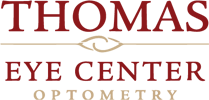MiSight 1 day contact lenses
MiSight 1 day contact lenses is the first FDA approved myopia management to help slow down the progression of myopia.
MiSight is a daily disposable soft contact lens. Candidates for this contact lens are children between the ages of +/- 8-12 years old and have a refraction of -0.75 to -4.00 diopters (spherical equivalent) with less than -0.75 diopters of astigmatism.
Patients can stay enrolled in the program until their late teens/early twenties.
Nearsightedness
Myopia is becoming a growing concern. Myopia is more commonly referred to as nearsightedness, or the inability to see objects clearly at a distance. Myopia is on the rise in its frequency and severity.
The reason for its escalation has been linked to two factors: genetics and lifestyle. Children with one or two myopic parents are more likely to be myopic. Children who spend more time on activities like reading or using handheld devices instead of spending time outdoors are more likely to become myopic. Severe near-sightedness has been linked to sight-threatening conditions later in life such as retinal detachment, glaucoma, and myopia maculopathy.
ActivControl Technology
The MiSight 1 day uses ActivControl Technology to slow the elongation of the eyes. ActivControl Technology simultaneously corrects a child’s vision while training the eye to resist growth in length. In clinical trials, MiSight 1 day contact lenses were shown to slow the progression in children (8-12 years of age at the initiation of treatment) in 2 ways: 59% average reduction in prescription change and 52% reduction in eye lengthening.
MiSight 1 day contact lenses
If you would like more information on the MiSight 1 day contact lenses or think your child might be the perfect candidate, please contact our office.
Atropine drops
Low dose atropine is the most effective medication that has been demonstrated to be consistently effective in slowing myopia progression. Atropine is used for cycloplegia and mydriasis, which is paralysis of the ciliary muscle of the eye resulting in dilation of the pupil and paralysis of accommodation. This action of inhibiting accommodation allows to accurately obtain a refraction in children.
Topical eye drops prevent myopia progression
In many studies, topical atropine of varying concentrations have been administered to children with myopia to prevent myopia progression. It was found that using low-concentration atropine eye drops had less side effects and were well-tolerated by the children and less likely to discontinue treatment.
One of the most increasingly prevalent vision issues in the U.S. is myopia. Myopia is up 25% from only 40 years ago, and this trend is expected to continue in the future decades. Globally, experts predict half of the world population could be myopic by 2050 with nearly one-fifth at risk for blindness.
Myopia is a pandemic affecting children of all ages, and at Thomas Eye Center we have the tools to slow down myopia progression.
